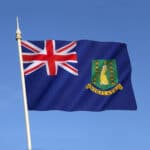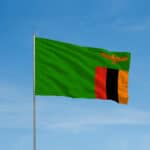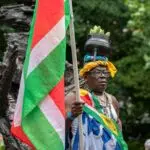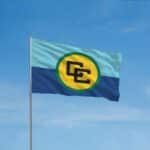Keti Koti is a celebratory festival commemorating the emancipation of slaves on July 1 of every year in the Netherlands. Keti Koti, translated to ‘Broken Chains,’ was marked as the day when slavery was abolished in the country back in 1863. It is a day when liberty, equality, and solidarity are nationally honored by parading out on the streets with music, dance, and food.
History of Keti Koti
Keti Koti means to ‘break the chains’ — a symbol that depicts freedom from slavery. Although July 1, 1863, was the day when slavery was formally abolished in Suriname and the kingdom of the Netherlands (and its colonies), it took another 10 years to completely weed out the remains of servitude.In the Dutch colonies, July 1 is remembered with the term ‘the abolition,’ stemming from a misguided pride of the government that instituted slavery, maintained it for centuries, and intentionally ‘abolished’ or brought disruption to it in 1863.The event of July 1, 1863, was not recognized in the Netherlands until 1963 — 100 years later. After 1963, the city of Amsterdam began to organize performances and parades and highlighted them in the national newspaper. However, that wasn’t enough — the Dutch government was yet to apologize for centuries of injustice.By the 1990s, in Rotterdam, the Afro-Dutch community began to voice their criticism, demanding that July 1 be included in the history books, made into a memorial or national holiday, and, importantly, that they receive an apology from the Dutch government. Their efforts paid off and July 1 was proclaimed a national memorial holiday in the Netherlands, characterized by the Keti Koti festival.
Keti Koti timeline
On July 1, the instituted slavery of the Dutch colonies is declared abolished.
Only the city of Amsterdam organizes parades, performances, and mentions the abolition of slavery in the newspapers.
The Afro-Dutch community in Rotterdam demands a better way of recognition for the day by the government.
A monument is erected in Lloyd Pier in Rotterdam, the city that was a second home to the practice of slavery, to commemorate 150 years of Keti Koti.
Keti Koti FAQs
When was slavery abolished in the Netherlands?
Slavery was abolished in the Netherlands on July 1, 1863.
What does Keti Koti mean?
‘Keti Koti’ means to ‘break the chains’ or ‘the chains have broken.’
Does the system of slavery still exist?
Despite it being prohibited, the sinister practice of slavery exists in modified forms in the modern world, including forced labor and child labor.
How To Observe Keti Koti
-
Join in the parades
If there’s a Keti Koti festival around you, make sure you do not miss out on it!
-
Participate in Free the Slaves
Free the Slaves is an international non-governmental organization that encourages people to mobilize others and do their part in erasing racism and slavery in the modern world. Ensure that Keti Koti doesn’t limit itself to Dutch and Surinamese communities — it can be a celebration for all people.
-
Spread the word
Use Keti Koti as a day to spread the message of the occasion on social media. On this day, run a social media campaign using the #FreeTheSlaves and #KetiKoti hashtags.
5 Facts About Slavery That You Didn’t Know
-
The Netherlands took their time
It was one of the last countries to abolish the system of slavery.
-
Two slaves died daily on Dutch ships
During the era of Dutch slavery, approximately two out of every 1,000 slaves died every day on the Dutch slave ships per month — the highest total compared to English or French slave ships.
-
International slavery continues in the 21st century
In 2019, an estimated 40 million people were enslaved with 25% of them being children.
-
Slavery generates billions in profit
It is reported that slavery generates around $150 billion in annual profits.
-
Modern forms of slavery
Slavery is still an international problem, with modified and modern forms including forced marriages, child soldiers, sex trafficking, and sexual slavery.
Why We Love Keti Koti
-
It celebrates the abolition of the slave trade
For over 200 years, the Netherlands remained involved in the slave trade, and Keti Koti is a day to celebrate the ultimate eradication of that horrible practice.
-
It celebrates equality and freedom
All humans are equal. Everyone has the right to live a life of their own, remain free of influence, and live as equals. This day emphasizes the fact that slavery or discrimination is intolerable.
-
It’s a day of remembrance for the Dutch government
Similar to how the Afro-Dutch community pressured the government to include Keti Koti as a national memorial holiday, the day on the calendar is an ever reminder of the Dutch government's unjust actions and discrimination and that they should continue to try to make amends for this.
Keti Koti dates
| Year | Date | Day |
|---|---|---|
| 2023 | July 1 | Saturday |
| 2024 | July 1 | Monday |
| 2025 | July 1 | Tuesday |
| 2026 | July 1 | Wednesday |
| 2027 | July 1 | Thursday |

































































































